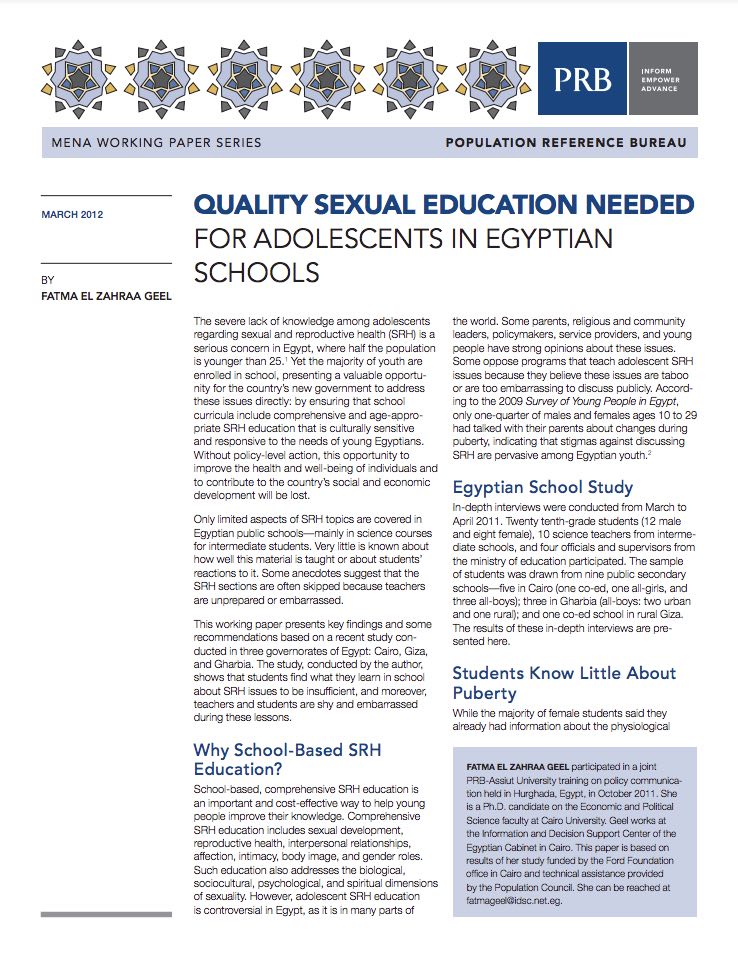
Quality Sexual Education Needed for Adolescents in Egyptian Schools
Other Languages
The severe lack of knowledge among adolescents regarding sexual and reproductive health (SRH) is a serious concern in Egypt, where half the population is younger than 25. The majority of youth are enrolled in school, presenting a valuable opportunity for the country’s new government to address these issues directly: by ensuring that school curricula include comprehensive and age-appropriate SRH education that is culturally sensitive and responsive to the needs of young Egyptians. Without policy-level action, this opportunity to improve the health and well-being of individuals and to contribute to the country’s social and economic development will be lost.
Only limited aspects of SRH topics are covered in Egyptian public schools—mainly in science courses for intermediate students. Very little is known about how well this material is taught or about students’ reactions to it. Some anecdotes suggest that the SRH sections are often skipped because teachers are unprepared or embarrassed.
This working paper presents key findings and some recommendations based on a recent study conducted in three governorates of Egypt: Cairo, Giza, and Gharbia. The study, conducted by the author, shows that students find what they learn in school about SRH issues to be insufficient, and moreover, teachers and students are shy and embarrassed during these lessons.
Fatma El Zahraa Geel participated in a joint PRB-Assiut University training on policy communication held in Hurghada, Egypt, in October 2011. She is a Ph.D. candidate on the Economic and Political Science faculty at Cairo University. Geel works at the Information and Decision Support Center of the Egyptian Cabinet in Cairo. This paper is based on results of her study funded by the Ford Foundation office in Cairo and technical assistance provided by the Population Council. She can be reached at fatmageel@idsc.net.eg.

 ">
">